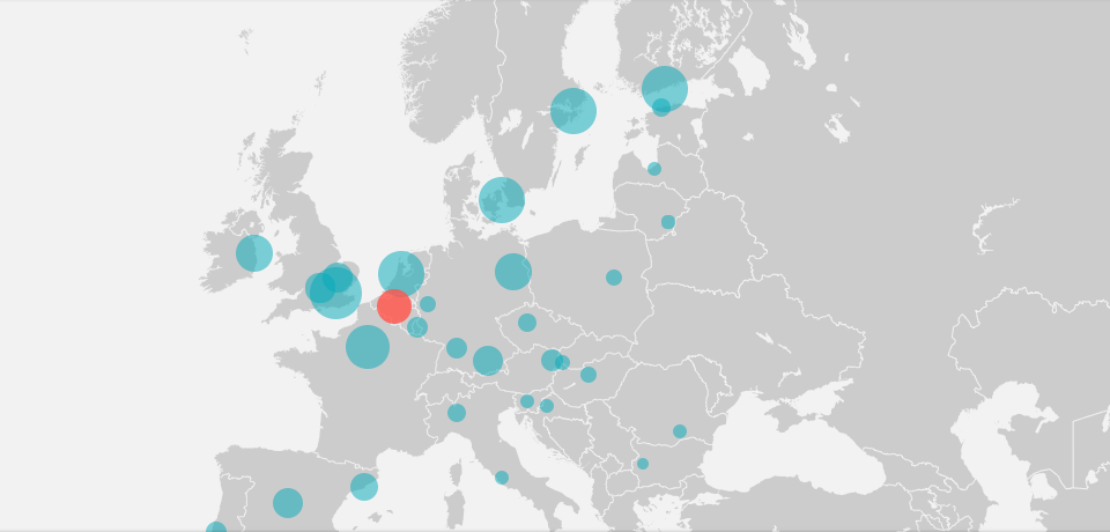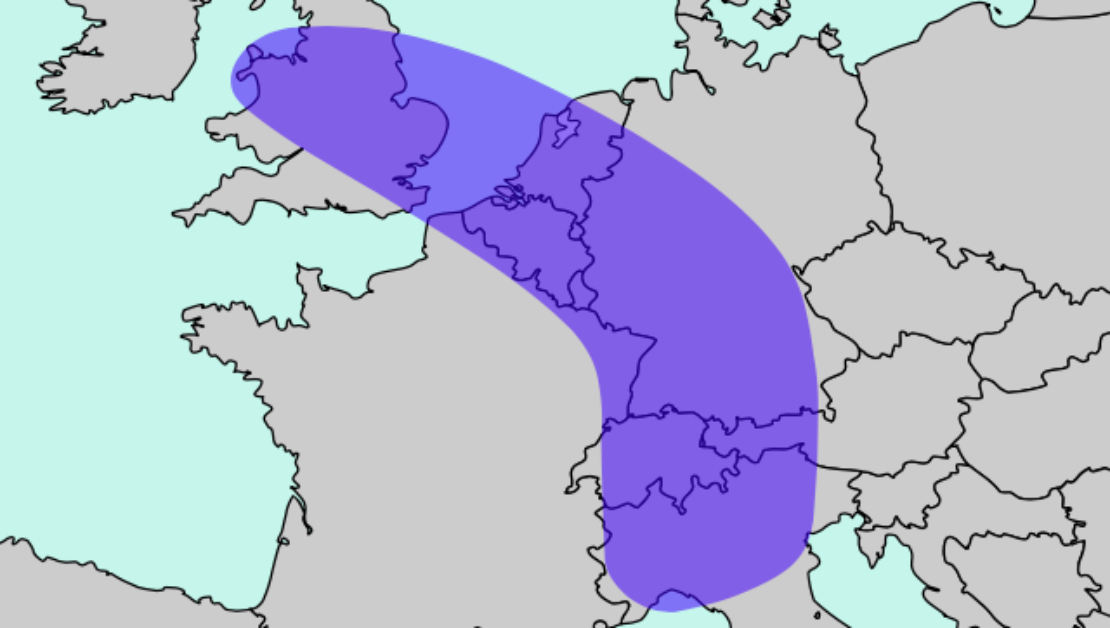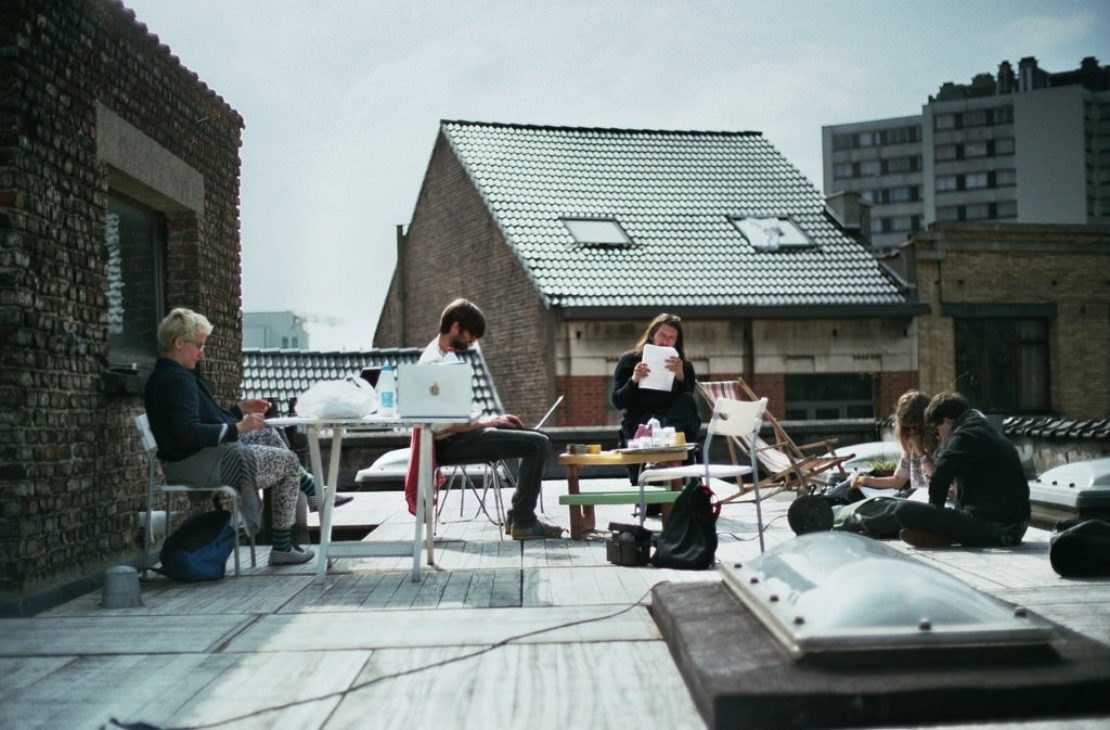Why Brussels is more than a mere byword for bureaucracy

A ripe blue banana
Brussels is a peculiar place to be if you're a startup. The Belgian capital gets a bad rap as a dull city frequented only by those on dry bureaucratic business, but digging a bit deeper reveals a multicultural city with plenty of new ideas, top-flight talent and an ecosystem that allows startups to thrive.
The intertwining of a favourable business environment and the availability of venture capital and other finance, along with the presence of 'anchor institution' – nonprofits that tend to stay put – all contributed towards Brussels being placed ninth for startups and seventh for scale-ups in the European Digital City Index (EDCi). The Index, published last month by Nesta (which also publishes The Long + Short), describes how well 35 cities across Europe support digital entrepreneurs. Brussels's top-ten result is higher than you might expect for a place more synonymous with stuffy bureaucracy and diplomacy.
According to the Index, the cost of living in Brussels is relatively high (compared to say, Madrid or Lisbon), but this is balanced by a high standard of living, characterised by top-notch public healthcare and education, which are especially welcoming to families looking to relocate. Universities in the region (and their associated 'knowledge spillovers') were ranked joint second in the Index as they profit from decades of investment by the Belgian government; and in turn produce the talented researchers and engineers necessary for the staffing needs of startup companies. The presence of large expat communities also makes the city attractive to skilled immigrants from outside the EU. Brussels is fortunate too to be part of the 'Blue Banana' – the banana-shaped metropolitan axis running from London to Milan, which has been identified as "Europe's breeding place for innovation and growth".

But the downside of these benefits is that taxes, both on businesses and personal income tax, are very high – an especially important issue for newly launched businesses that have much else to worry about.
Super for startups
Sitting as it does in the geographic, as well as the political, centre of Europe, Brussels hosts both powerful European institutions and corporate headquarters. As a result, numerous big companies have incubators or accelerators in the capital to nurture startup talent and drive in-house innovation. This is especially so in the financial sector, with global powerhouses like SWIFT, Euroclear, MasterCard and BNY Mellon, who have their European or global HQs in Brussels. So there is a significant network of expertise and talent in the area, and it is increasingly positioning itself as a FinTech destination, with an estimated 150 startups that are active in this field.

Other major sectors for startups and scale-ups in the city include healthcare tech, manufacturing and adtech. Brussels accounts for one in every three startups registered in Belgium, and two-thirds of these are focused on business-to-business solutions, with the rest centred on consumer products and services. Interestingly, it's the exact reverse proportion of those targeted by Silicon Valley startups.
Sorrow for scale-ups
According to research carried out by the Scale-up Institute, the number one challenge for companies looking to scale rapidly is "recruiting people with the skills and ambition required for technical and business roles". In other words, scale-ups need mature business executives to help steer them through their high-growth phase. In theory, then, Brussels should stand to benefit from the many corporates in the region. But in Belgium, and across much of western Europe, these senior managers can be caught in a 'golden cage' with all the trappings of corporate comfort including a car, private medical insurance, the latest computers and gadgets, and generous pensions. Moving to a scale-up would also mean paying a 'double tax': taking a lower salary but staying in the same tax bracket.
Another anomaly, peculiar to Belgium, is that if a Belgian resident sells their company shares, any capital gains aren't taxable. Simply put, there's no tax payable on all sold shares (in most European countries you would be liable for 25 per cent capital gains tax). The upshot of this is that both entrepreneurs and shareholders often end up looking for a quick exit via sale, rather than to grow the business.
However, according to Omar Mohout, professor of entrepreneurship at Antwerp Management School, what really holds Belgian entrepreneurs back is a risk-averse mindset, possibly because failing (in business) is considered "a black mark or tag for life", as indeed it is in much of the EU. Professor Mohout does point out that these attitudes are slowly changing, though it will probably take a generation or two to fully evolve.
Explore
How are we coping with the failure of our startup? Inner city life Is Paris a city stuck in the past?Crowdsourced solutions
Belgium has been impressively proactive in improving the prospects for local entrepreneurs and developing businesses. Karen Boers, co-founder and Managing Director of Startups.be and co-author of Belgium's startup manifesto, decided to act on these issues in response to the expanding needs of entrepreneurs. In the most innovative democratic tradition, she decided to crowdsource solutions by administering a 'call for stories' on what changes were necessary to make the ecosystem better. In three weeks she had 120 responses. Several of these concrete recommendations, including a tax shelter for startups, a higher crowdfunding tax threshold, lower payroll taxes for new businesses, and night-time labour in the e-commerce sector, were launched by Alexander de Croo, Minister of Digital Agenda. In the end, perhaps the minister had no option but to act, as Boers and her colleagues had targeted key decision makers with evidence collected from over 3,000 signatories, which included representatives from 100 incubators and accelerators, as well as more than 1,400 startups.
In addition, given the short distances between the major urban areas in this relatively small country, a national strategy has been adopted to combine several cities into a common hub that can compete with nearby rivals like Berlin in terms of output (emulating the example set by the Netherlands' Startup Delta).
Conscious expansion
Brussels is well positioned to develop and grow a number of startups but impediments remain in turning such endeavours into fast growing scale-ups. Positive steps to address these deficiencies are being made, especially at a policy level. What remains to be done, in the words of both Professor Mohout and Karen Boers, is at the individual level, as Belgian entrepreneurs need to think beyond their borders and focus on how to take their products and services to international markets.